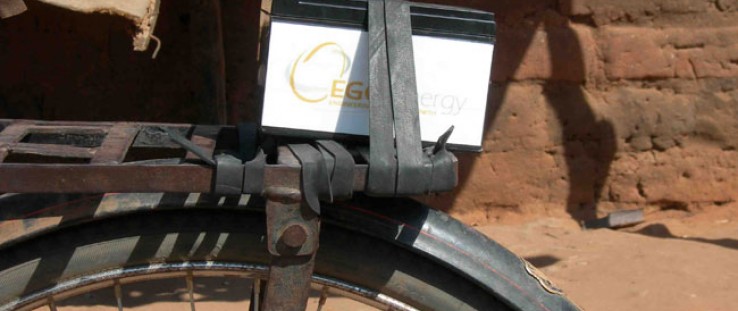 EGG-energy developed a portable rechargeable battery that can be transported easily to homes. Each battery can provide power for up to five nights, after which the customer can switch a depleted battery for a fresh one at one of 10 distribution depots.
EGG-energy
EGG-energy developed a portable rechargeable battery that can be transported easily to homes. Each battery can provide power for up to five nights, after which the customer can switch a depleted battery for a fresh one at one of 10 distribution depots.
EGG-energy
 EGG-energy developed a portable rechargeable battery that can be transported easily to homes. Each battery can provide power for up to five nights, after which the customer can switch a depleted battery for a fresh one at one of 10 distribution depots.
EGG-energy
EGG-energy developed a portable rechargeable battery that can be transported easily to homes. Each battery can provide power for up to five nights, after which the customer can switch a depleted battery for a fresh one at one of 10 distribution depots.
EGG-energy
Speeches Shim
Although rural Tanzanian farmers rely on radios for local and world news as well as critical information about weather conditions, only 2 percent of them have access to electricity. Without a place to plug them in, the radios gobble up disposable batteries—both a financial drain and an environmental hazard.
Alla Jezmir
Age: 32
Company: EGG-energy
Mission: To deliver electricity to low-income African households with rechargeable batteries for families without access to the grid.
Non-grid energy solutions force Tanzanians to spend $715 million per year on hazardous kerosene for lighting. Households spend approximately 10 percent of their incomes on basic energy services—a substantial amount for many Tanzanians with meager earnings.
This lack of basic resources for people who have such a dire need for them has served as constant motivation for EGG-energy board member Alla Jezmir. EGG-energy, which stands for Engineering Global Growth, is a start-up company based in Tanzania that provides electricity services to low-income African households by using the end of a transmission line to charge batteries for families without access to grid connections.
As of July 2012, EGG-energy operates three grid-based charging stations that provide electricity services to over 2,000 people, and one solar-powered, off-grid station. Jezmir says the on-grid stations, based outside of the city center of Dar es Salaam, are located near pockets of off-grid populations. From these stations, EGG-energy offers full service to its customers: complete installation of wiring, lighting fixtures, bulbs and switches in customers’ homes; subscriptions for fully charged batteries; and appliances like adaptors for phones and radios.
In what the company dubs its “Netflix solution,” customers can conveniently switch depleted batteries for fresh ones at 10 distribution depots. The depots receive battery shipments either by picking them up from one of the charging stations, or by having them delivered by EGG-energy employees for a fee. The company selects and trains local entrepreneurs to run these depots.
Once entrepreneurs have secured customers, EGG-energy electricians install a client’s lighting system, planting a portable, brick-sized, lead-acid battery outside their home that provides power for up to five nights. A monthly subscription fee of $4.60 covers the cost of battery charging and the swap service. Discussions are under way to equip the batteries with power strips showing when the battery should be replaced.
This comprehensive electricity service provides clients with the actual electricity, as well as appliances and installation services, bringing grid power right to their doorsteps.
Now, EGG-energy customers do not have to travel miles to charge a cell phone, burn through pricey disposable batteries for a radio, and release carbon dioxide fumes from expensive kerosene lighting. Customers can use expendable income for other investments.
EGG-energy reports that the pricing scheme gives the local depot entrepreneurs a six-year average profit of 24 percent, customers 35 percent annual savings on energy expenditures, and a company rate of return of 27 percent over six years.
“The venture is based on the team’s belief in market-driven solutions, and we committed to finding those on the ground,” said 32-year-old Jezmir. “It was this very notion that we can provide affordable solutions that can dramatically improve lives while saving customers’ money that has kept us going despite all our challenges.”
Fueled by a desire to use her international development and entrepreneurial business expertise for social good, Jezmir used the vast network available to her at Harvard, where she graduated with an MBA and MPA in 2009. She and other engineering Ph.D. and MBA students from Harvard and MIT with a shared interest in social enterprise founded EGG-energy that same year.
After first taking root, EGG-energy aimed to provide clean power to the developing world through on-grid—and eventually through a majority of off-grid solar-powered—energy models.
But refining the group’s early model could not proceed until the founding team of eight was able to work on the ground, testing and evolving their innovation with local franchisees. They needed money to run a three-month feasibility study and then to open a pilot site outside of Dar es Salaam. Additional capital was required to refine the group’s current model and begin testing the model of franchising solar hubs to local entrepreneurs.
That is where USAID stepped in. The Agency provided the start-up a $100,000 Development Innovation Ventures (DIV) grant in early 2012, which they used to test the modular solar hub project in its early stage. The money is specifically being used to hone in on the scale to which solar power can effectively reach and serve Tanzanian villages.
“This money has enabled us to make sure the program is tested, that we have sufficiently prepared for the next phase,” Jezmir said. “Through the grant, we are able to refine processes as well as prepare to launch our franchising strategy.”
USAID funds are helping EGG-energy further develop its franchise for off-grid and solar models so they can scale further into the country’s remote areas.
“With Tanzania’s poor infrastructure, we need to find ways to get energy sources closer to the end customer and to develop business models that allow this energy to be profitably distributed,” said Jamie Yang, CEO of EGG-energy. “USAID … is supporting EGG-energy to identify, train and support franchisees that will operate solar-powered hubs that distribute electricity to customers in their community.”
Closing the Energy Gap Opens Doors
Since April 2010, EGG-energy has managed to fill the energy gap for 220 Tanzanian customers outside of Dar es Salaam, which has ignited a domino effect for other improvements. Prior to rechargeable batteries, the people living in these Tanzanian villages relied on kerosene for lighting, which posed serious health and safety hazards. But improving health conditions was just the first step.
“With the reliable and clean power services of EGG-energy, families have a higher sense of security and improved educational and business outcomes,” Jezmir said. “These include being able to study later at night and improve grades, as well as forming secondary businesses, such as kiosks or phone-charging services, that benefit from the ability to operate later in the night. With the extra money our services provide them, customers can invest in their businesses.”
The USAID-supported company creates and sustains jobs in the local community, which is an important factor in the company’s business model.
“Our distribution depots are operated by local business owners,” Jezmir said. “They can boost their incomes this way as they swap batteries. Not only are we providing the service, but we are creating jobs, and working with local entrepreneurs is a core element of our distribution structure.”
Jezmir adds that the most shocking realization for the team—and what continues to motivate her today—was when she discovered that people spent 10 percent of their already meager incomes on poorly implemented energy services, which leaves them little to spend on other necessities, much less the tools that can help them improve their lives.
“We wanted to offer them something that enabled them to improve their quality of life and save money and be able to invest that money in other ways,” Jezmir said. “Our team has found that it is quite expensive to be poor, and that the poor spend a disproportionately high percentage of their incomes on poor-quality services. With EGG-energy, our customers can break even in the first year and save 50 percent in the second.”
While working to increase off-grid solar charging systems, EGG-energy hopes to expand its energy sources to 90,000 households within five years, and to develop 100 grid-based charging bases and over 100 franchisees to operate with in Tanzania.
“Ultimately, we are developing a portfolio of energy services that grows and evolves with customers’ demands,” Jezmir said. “We hope to adapt to the needs of our customers and evolve our business model accordingly.”

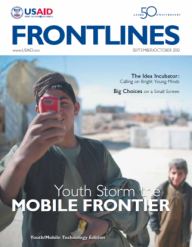

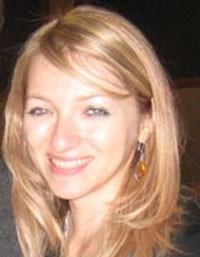
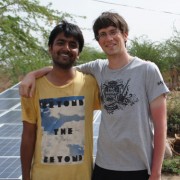
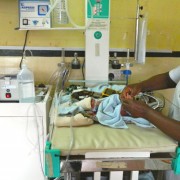
Comment
Make a general inquiry or suggest an improvement.